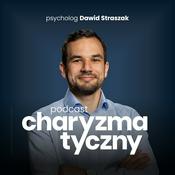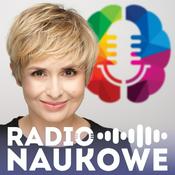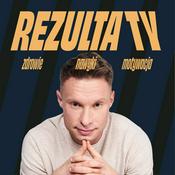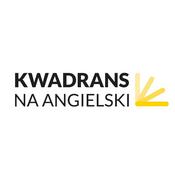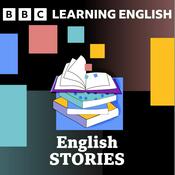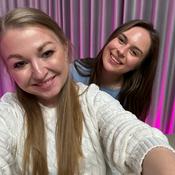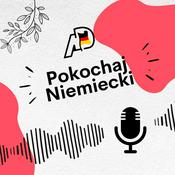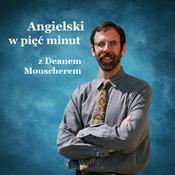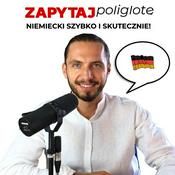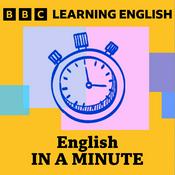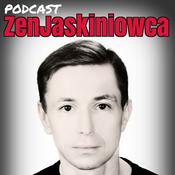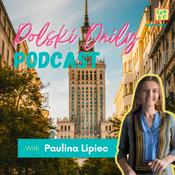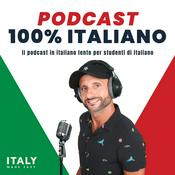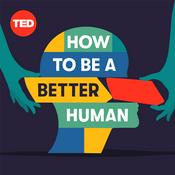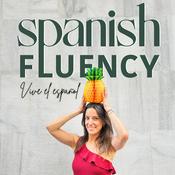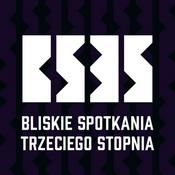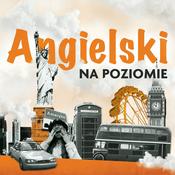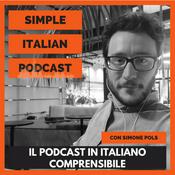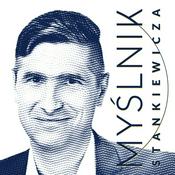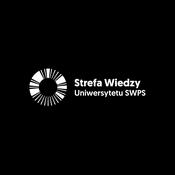8 odcinków
- OVERVIEW
Science Diplomacy sits at the center of International Relations and US-India cooperation in this episode of The Global Lens, where host Daniella Sussman speaks with Neetisha Besra about building durable research bridges between the two countries. The conversation examines how academic institutions, policy frameworks, and people-to-people ties are shaping a deeper and more strategic U.S.–India partnership.
EPISODE SUMMARY
This episode explores how research collaboration has become a powerful diplomatic tool between the United States and India. Neetisha Besra offers insight into how universities operate as connectors across governments, disciplines, and borders. The discussion highlights the practical work behind sustaining long-term partnerships, from navigating policy environments to aligning institutional priorities. Listeners gain a grounded view of how global challenges are increasingly addressed through collaborative research ecosystems rather than bilateral politics alone.
In this episode, we discuss:
00:46 - Setting the stage for the U.S.–India research corridor
01:48 - Why 2025–2026 marks a critical window for the U.S.–India scientific partnership
07:15 - The research corridor as a living, operational ecosystem
10:05 - Institutional programs enabling sustained bilateral collaboration
13:21 - India RISE Fellowship and supporting women scientists in STEM
18:58 - Breakthrough grants and catalytic funding for high-risk research
29:29 - Measuring diplomatic impact beyond papers and patents
ABOUT THE GUEST
Neetisha Besra is the Director for the Gupta-Klinsky India Institute in India at Johns Hopkins University. Based in New Delhi, she leads GKII’s India strategy, partnerships, and operations to strengthen U.S.–India collaborations in research, education, and policy. She holds an MPA in International Development from Harvard Kennedy School, a Master’s in Development Practice from the Tata Institute of Social Sciences, and a Bachelor of Technology from IIT Kanpur.
MENTIONED IN THE EPISODE:
⚉ (Website) Gupta-Klinsky India Institute at Johns Hopkins University - https://indiainstitute.jhu.edu/
⚉ (Reference) Indo-U.S. Science and Technology Forum - https://iusstf.org/
⚉ (Reference) Fulbright-Nehru Scholarship Program - https://www.usief.org.in/fulbright-fellowships/fellowships-for-indian-citizen/
⚉ (Reference) The NASA-ISRO Synthetic Aperture Radar - https://science.nasa.gov/mission/nisar/
⚉ (Reference) India RISE Fellowship - https://indiainstitute.jhu.edu/our-initiatives/indiarise/
⚉ (Reference) TB Free Schools Initiative - https://indiainstitute.jhu.edu/our-initiatives/tb-free-schools-initiative/
————
This episode is brought to you by Global Signals, a curated bi-weekly paid newsletter for globally minded policymakers, international researchers, strategic industry leaders, and investors.
Subscribe here: https://tinyurl.com/Global-Lens
————
CONNECT WITH NEETISHA BESRA:
⚉ Website: https://indiainstitute.jhu.edu/directory/neetisha-besra/
⚉ LinkedIn: https://www.linkedin.com/in/neetishabesra/
⚉ X (Twitter): https://x.com/NeetishaBesra
CONNECT WITH DANIELLA:
⚉ Podcast Website: https://the-global-lens.captivate.fm/
⚉ LinkedIn: https://www.linkedin.com/in/daniellasussman/
⚉ Instagram: https://www.instagram.com/daniellasussmanglobal/ - OVERVIEW
As global research ecosystems modernize and AI reshapes scientific infrastructure, host Daniella Sussman and guest Joseph F. Krause examine how science diplomacy, materials science, and AI are converging to redefine how nations and industries pursue technological breakthroughs. Their exchange underscores the accelerating transition toward autonomous discovery, where governments, national labs, and private innovators collaborate to build next-generation research capabilities.
EPISODE SUMMARY
This conversation charts Radical AI’s emergence as a technical and strategic force, detailing how autonomous labs, large-scale data generation, and machine-learned simulations are restructuring the scientific process. Joseph outlines the shift from serial to parallel discovery, the role of open-source tools in expanding global participation, and the policy frameworks now shaping AI-native research programs. The discussion illustrates why materials development is becoming a geopolitical priority and how collaboration, infrastructure, and policy alignment are essential to remain competitive. By integrating scientific insight with national-level strategy, the episode positions the future of discovery as both a technological and diplomatic undertaking.
In this episode, we discuss:
03:06 – The founding vision behind Radical AI
07:30 – Redefining the scientific workflow through parallel discovery
11:18 – How TorchSim and open-source tools expand global access
17:39 – The intensifying race for scientific leadership and the global stakes of AI-native research
20:52 – Data availability, global standards, and international collaboration
23:30 – Who shapes global AI standards and how Radical AI contributes to that future
39:02 – The future vision of removing materials as a global bottleneck
ABOUT THE GUEST
Joseph F. Krause is Co-Founder and CEO of Radical AI, which combines AI and robotics to accelerate the design, development, and discovery of novel materials. A U.S. Army National Guard veteran and trained materials scientist, he pioneered neuromorphic semiconductor research at the Army DEVCOM research lab and later led deep tech investments at AlleyCorp before founding Radical.
Radical AI is building a unified scientific intelligence platform that autonomously discovers, designs, and manufactures advanced materials - bridging gaps between research, industry, and policy. The company’s work advances how national labs, industry, and international partners collaborate to shape global standards in AI infrastructure and scientific innovation.
MENTIONED IN THE EPISODE:
⚇ (Studies or Research) Materials Project / Materials Genome Initiative - https://www.mgi.gov/content/materials-project
⚇ (Website) AI + Science Summit - https://www.scsp.ai/event/ai-science/
⚇ (Website / Tool) Torch Sim - https://github.com/TorchSim/torch-sim
⚇ (Reference) Open Catalyst Project - https://opencatalystproject.org/
————
This episode is brought to you by Global Signals, a curated bi-weekly paid newsletter for globally minded policymakers, international researchers, strategic industry leaders, and investors.
Subscribe here: https://tinyurl.com/Global-Lens
————
CONNECT WITH JOSEPH F. KRAUSE:
Website: https://www.radical-ai.com/
LinkedIn: https://www.linkedin.com/in/josephfkrause/
X (Twitter): https://x.com/josephfkrause/
CONNECT WITH DANIELLA:
Podcast Website: https://the-global-lens.captivate.fm/
LinkedIn: https://www.linkedin.com/in/daniellasussman/
Instagram: https://www.instagram.com/daniellasussmanglobal/ - OVERVIEW
As international partnerships expand and space innovation accelerates, host Daniella Sussman and guest Jared Stout explore how science diplomacy is emerging as a foundation for cooperation in the new space era. Their discussion highlights how government, industry, and global partners are working together to shape the future of human activity in orbit.
EPISODE SUMMARY
This wide-ranging conversation traces the evolution of commercial spaceflight, the shifting role of government in space leadership, and the rise of private-sector actors who are now shaping global space norms. Jared offers a grounded look at how Axiom Space is building the world’s first commercial space station while forging international partnerships that expand access and opportunity beyond legacy spacefaring nations.
The episode also explores the increasing role of diplomacy in a rapidly industrializing space economy, illuminating why cooperation, innovation, and policy must evolve together. By connecting politics, technology, and aspiration, this dialogue reveals how humanity’s next giant leap will depend on collaboration rather than competition.
In this episode, we discuss:
01:54 - Axiom Space’s role in opening low Earth orbit to new players
06:26 - How Axiom’s Global University Alliance empowers worldwide research
16:00 - Bringing astronauts from India, Poland, and Hungary to the ISS after decades
20:19 - Navigating international frameworks and domestic governance challenges
28:50 - Challenges in aligning public goals with private space companies
33:06 - Fostering innovation and risk tolerance in international collaborations
36:35 - Advocating global cooperation to navigate geopolitical upheaval and shape the future
ABOUT THE GUEST
Jared Stout is a leading voice in space policy, government relations, and international partnerships. At Axiom Space, he directs advocacy, outreach, and policy initiatives that shape the company’s work across global, federal, and regional arenas.
Before joining Axiom (Axiom Space), Jared served as Deputy Executive Secretary and Chief of Staff for the White House National Space Council, where he helped steer U.S. space policy spanning civil, commercial, and national security priorities. He has also held senior roles at the Federal Aviation Administration’s Office of Commercial Space Transportation and on the House Science, Space, and Technology Committee, where he was directly involved in drafting key NASA and commercial space legislation.
Today, his deep background in policy and advocacy strengthens Axiom Space’s mission to build the world’s first commercial space station and to develop the first new lunar spacesuits since the Apollo era.
MENTIONED IN THE EPISODE:
⚇ (Reference) NASA’s Commercial Low Earth Orbit Program Office - https://www.nasa.gov/johnson/commercial-low-earth-orbit-program-office/
⚇ (Reference) FAA Office of Commercial Space Transportation - https://www.faa.gov/space
————
This episode is brought to you by Global Signals, a curated bi-weekly paid newsletter for globally minded policymakers, international researchers, strategic industry leaders, and investors.
Subscribe here: https://tinyurl.com/Global-Lens
————
CONNECT WITH JARED STOUT:
⚇ Website: https://www.axiomspace.com/
⚇ LinkedIn: https://www.linkedin.com/in/jared-m-stout/
CONNECT WITH DANIELLA:
⚇ Podcast Website: https://the-global-lens.captivate.fm/
⚇ LinkedIn: https://www.linkedin.com/in/daniellasussman/
⚇ Instagram: https://www.instagram.com/daniellasussmanglobal/ - OVERVIEW
Science Diplomacy enters uncharted territory in this episode of The Global Lens, as Daniella Sussman and Rui Pedro Duarte discuss how artificial intelligence is emerging as a new geopolitical actor. From the rise of digital twins to the redefinition of statecraft, they explore how technology is transforming power, partnerships, and the practice of diplomacy in the twenty-first century.
EPISODE SUMMARY
In this conversation, Rui Pedro Duarte outlines a near-future vision where AI systems actively participate in global governance, crafting and refining treaties in real time. The discussion moves from the need for agile diplomacy and multi-stakeholder collaboration to the idea of machine-readable rights and decentralized governance models.
As AI becomes a geopolitical force, Duarte argues that innovation, international partnerships, and digital foresight will determine how humanity governs its future. Through vivid examples from his book Statecraft 3.0, the episode challenges listeners to imagine diplomacy that learns, adapts, and co-evolves with technology.
In this episode, we discuss:
02:42 – Introducing AI’s transformative role in decision-making
04:56 – Redefining agility in diplomacy
06:51 – Power shifting from states to technology platforms
10:40 – Embracing experimentation and interoperability
13:25 – How polycentric governance strengthens multilateralism
20:17 – Modeling the future through simulation
35:05 – Positioning artificial intelligence as a central force in the next era of statecraft
ABOUT THE GUEST
Rui Duarte is the Managing Director of Loop Future Switzerland (DACH) and Director of AI Governance at RegHorizon, home of the AI Policy Summit. He is the author of Statecraft 3.0: The Age of AI Diplomacy, a member of the Diplomatic Courier’s World in 2050 Brain Trust, and serves on the GAFAI Policy & Regulation Executive Office. A former Member of Parliament in Portugal, Rui has over 15 years of experience across government, international organizations, and the private sector. He speaks globally on AI governance, ethics, and the future of diplomacy.
MENTIONED IN THE EPISODE:
⚇ (Book) Statecraft 3.0: The Age of AI Diplomacy - https://www.amazon.com/dp/3215472155
⚇ (Studies or Research) Destination Earth - https://destination-earth.eu/
⚇ (Studies or Research) European Digital Twin of the Ocean - https://research-and-innovation.ec.europa.eu/funding/funding-opportunities/funding-programmes-and-open-calls/horizon-europe/eu-missions-horizon-europe/restore-our-ocean-and-waters/european-digital-twin-ocean-european-dto_en
⚇ (Website) 6th AI Policy Summit (2025) - https://reghorizon.com/ai-policy-summit-2025/
————
This episode is brought to you by Global Signals, a curated bi-weekly paid newsletter for globally minded policymakers, international researchers, strategic industry leaders, and investors.
Subscribe here: https://tinyurl.com/Global-Lens
————
CONNECT WITH RUI PEDRO DUARTE:
⚇ Website: https://theageofaidiplomacy.com/
⚇ Website: https://www.reghorizon.com/
⚇ LinkedIn: https://www.linkedin.com/in/ruipedroduarte/
CONNECT WITH DANIELLA:
⚇ Podcast Website: https://the-global-lens.captivate.fm/
⚇ LinkedIn: https://www.linkedin.com/in/daniellasussman/
⚇ Instagram: https://www.instagram.com/daniellasussmanglobal/ - OVERVIEW
Science Diplomacy and Tech Diplomacy converge in this episode of The Global Lens where host Daniella Sussman and guest Martin Rauchbauer reflect on Silicon Valley’s growing role in shaping global governance and innovation. Their conversation explores how international partnerships and frontier technologies are influencing diplomacy, industry, and collective global influence in an increasingly interconnected world.
EPISODE SUMMARY
Martin Rauchbauer, co-founder of the Tech Diplomacy Network, shares his journey as Austria’s first Tech Ambassador in Silicon Valley, offering rare insights into how governments and tech executives align in a rapidly shifting world.
From adapting diplomatic skills to AI-driven realities to exploring the risks of monopolies, he emphasizes why innovation and international collaboration require new playbooks.
Listeners will learn why culture, adaptability, and shared responsibility are key for effective engagement between industry and diplomacy. This conversation is both a guide and a call to embrace experimentation, measured regulation, and cross-sector creativity in addressing global challenges.
In this episode, we discuss:
01:19 - The evolution of tech diplomacy and its roots in Silicon Valley
02:23 - The challenges of navigating global crises while technology acts as both problem and solution
04:08 - The adaptability required from both diplomats and tech executives in a world of fast transformation
06:56 - Why pragmatic problem-solving and regulatory clarity are essential for companies and governments
10:53 - How establishing permanent presence in hubs like Silicon Valley shapes meaningful tech diplomacy
15:56 - The rise of the Tech Diplomacy Network as a collaborative platform for countries and industries
19:01 - What other regions can learn from Silicon Valley’s culture of diversity, openness, and risk-taking
26:55 - Why embracing experimentation, sandboxes, and long-term thinking is crucial for governments
29:24 - How artists and technologists together push boundaries and inspire innovation
41:56 - Practical advice for both diplomats and tech founders navigating evolving ecosystems
ABOUT THE GUEST
Martin Rauchbauer is a senior diplomat at the Austrian Foreign Ministry in Vienna and co-founder of the Tech Diplomacy Network in Silicon Valley, a platform connecting governments, civil society, and global tech companies to address planetary challenges through frontier technologies. As Austria’s first Tech Ambassador in Silicon Valley, he helped shape the emerging field of tech diplomacy by driving transatlantic digital policy dialogues, advancing digital human rights, and establishing digital humanism as a strategic pillar of Austrian foreign policy. With a passion for bridging diplomacy, technology, the arts, and the environment, Martin has published and lectured internationally on these themes.
MENTIONED IN THE EPISODE:
⚇ (Website) Tech Diplomacy Network – https://www.tech-diplomacy.org/
⚇ (Website) Djerassi Residence Artist Program - https://djerassi.org/
————
This episode is brought to you by Global Signals, a curated bi-weekly paid newsletter for globally minded policymakers, international researchers, strategic industry leaders, and investors.
Subscribe here: https://tinyurl.com/Global-Lens
————
CONNECT WITH MARTIN RAUCHBAUER:
⚇ LinkedIn: https://www.linkedin.com/in/martinrauchbauer/en
CONNECT WITH DANIELLA:
⚇ Podcast Website: https://the-global-lens.captivate.fm/
⚇ LinkedIn: https://www.linkedin.com/in/daniellasussman/
⚇ Instagram: https://www.instagram.com/daniellasussmanglobal/
Więcej Edukacja podcastów
Trendy w podcaście Edukacja
O The Global Lens - Science Diplomacy in Focus
The Global Lens is a podcast showcasing science diplomacy through conversations with leaders at the forefront of innovation, research, and international partnerships. Hosted by Daniella Sussman, the show brings into focus how higher education institutions, research organizations, diplomats, policymakers, and private sector experts are building partnerships that address shared challenges and shape our future.
Each episode highlights real-world collaboration across higher education, research institutions, government, and industry, exploring how diplomacy and partnership in science and technology are shaping strategic engagement around the world.
Strona internetowa podcastuSłuchaj The Global Lens - Science Diplomacy in Focus, besties i wielu innych podcastów z całego świata dzięki aplikacji radio.pl
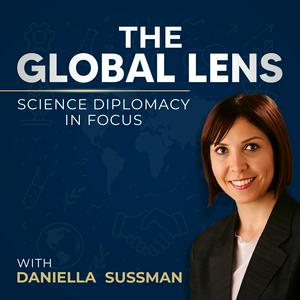
Uzyskaj bezpłatną aplikację radio.pl
- Stacje i podcasty do zakładek
- Strumieniuj przez Wi-Fi lub Bluetooth
- Obsługuje Carplay & Android Auto
- Jeszcze więcej funkcjonalności
Uzyskaj bezpłatną aplikację radio.pl
- Stacje i podcasty do zakładek
- Strumieniuj przez Wi-Fi lub Bluetooth
- Obsługuje Carplay & Android Auto
- Jeszcze więcej funkcjonalności


The Global Lens - Science Diplomacy in Focus
Zeskanuj kod,
pobierz aplikację,
zacznij słuchać.
pobierz aplikację,
zacznij słuchać.


